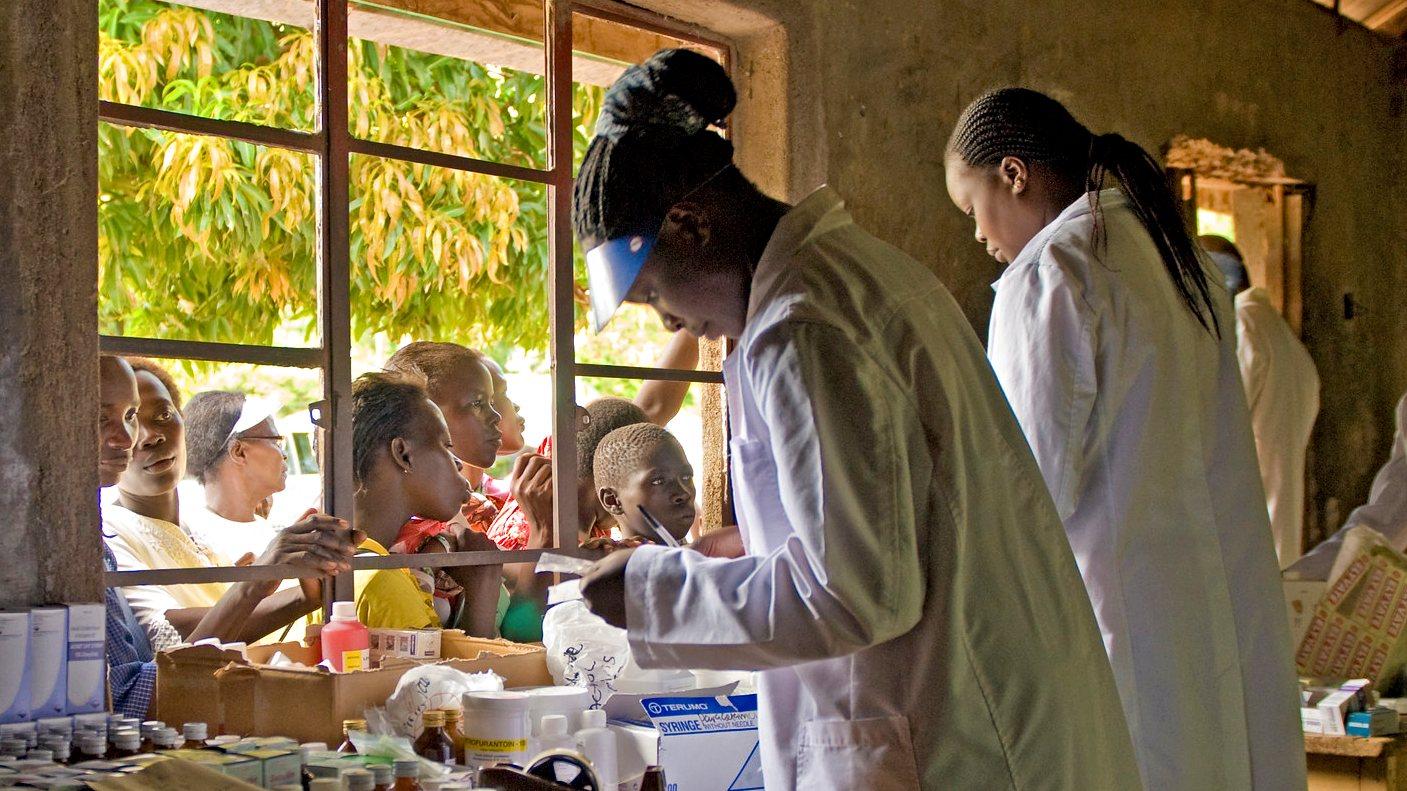Rising violence against women during the COVID-19 pandemic highlights the need to address the root causes of violence, both in peacetime as well as during war and conflict. To this end the international Women, Peace and Security agenda must de-securitise and address structural inequalities.
This year marks the 20th anniversary of the United Nation’s Security Council Resolution 1325 on Women, Peace and Security (WPS). The Resolution addresses the gendered experience of conflict and works to increase women’s participation in peace and security architectures. Since its adoption, at least 25 African countries have published National Action Plans to demonstrate their commitment to implementing the agenda, and the African Union has issued a framework to monitor its implementation across the continent.
Since the Resolution’s adoption, an onslaught of policy documents and discourses from member states have been subsequently published as commitments to work towards greater gender equality and an end to conflict-related sexual violence. However, critics have highlighted the severe limitations of WPS as an agenda that has become increasingly militarised, securitised and top-down in its implementation.
Women, Peace and Security and COVID-19
On the anniversary of Resolution 1325, the immediate and long-term impacts of COVID-19 on women and gender equality have a sobering effect. The moderate gains made in the last two decades, towards improving access to education and healthcare for women and girls in Africa, are severely threatened by the pandemic. As the majority of workers in health services and care work, women find themselves essential workers at the frontline of the pandemic, but without the essential support and protection they need. Lockdowns imposed in an effort to preserve public health have spurred increasing rates of gender-based violence, in what has been called a ‘shadow pandemic’. Border closures across the continent put women traders who cross borders at heightened risk, along with their livelihoods and health.
Africa Dialogue Series
These issues were discussed at the United Nation’s annual Africa Dialogue Series, which considered peace, security and development issues as they relate to the COVID-19 crisis, and the African Union’s 2020 theme of ‘Silencing the Guns in Africa’ – bringing an end to violent conflict, gender-based violence and genocide. In line with my MSc programme at LSE, I attended a session on ‘Women, Peace, Security and Development’ featuring high level representatives from UN Women, the AU, the Namibian Government and various civil society organisations.
The session reiterated the familiar call to increase women’s participation in peace processes, conflict mediation, peacekeeping forces and the security sector and expanded that call to the COVID-19 response. By including women in these processes, assumptions are made that their personal experiences or understanding of how these domains relate to gender-based violence or sexual exploitation will lead to improved policy outcomes, combined with views of women as being inherently more peaceful and thus a positive influence in these settings.
The continuum of violence – addressing structural inequalities in peacetime
While the Women Peace and Security agenda has its roots in responding to violent conflict, any agenda that purports to advance gender equality and eliminate violence against women and girls needs to address the deeply rooted systemic and structural causes of gender inequality. COVID-19, and its disproportionate impact on women, indisputably demonstrates the need for an approach that considers the structural injustices that enable gender-based violence to flourish outside the boundaries of conflict. The multidimensional consequences of the pandemic lay bare the need for a more intersectional, transformative and sustainable approach to gender, peace and security in times of crisis, but also outside such periods.
Feminist scholars have described as a continuum of violence the links between harms occurring in war, the workplace and the home. Whether occurring during conflict, a pandemic or peace time, gender based violence is deeply rooted to patriarchy, economic inequality and discriminatory laws and justice systems and cultural norms that are biased against women’s full and equal participation in politics and the economy. In this light, the current situation shows the danger of addressing violence against women without an interrogation of intersecting structural inequalities and the recognition that gender (not synonymous with women) is inherently connected to class, race and other hierarchies of oppression. Pointing to gender equality and women’s empowerment is all well and good, but a critique of how power links to COVID-related harms is essential to sustainable, transformative policy. This perspective in the Dialogue series was largely absent from the discussion.
While the Security Council’s Resolutions are critically useful for driving member states to action, they are a starting point; they are a resource for organisations with a commitment to gender equality and women’s rights to tailor and to enhance, using local experience and local knowledge.
One speaker spoke to moving beyond the familiar call for increasing women’s participation in peace and security efforts. He challenged actors to interrogate the assumptions about ‘women’, peace and security that have thus far informed the discourse – to ultimately de-securitise, de-militarise and decolonise the WPS agenda. Such an effort requires, for example, a shift in the notion that African nations are dependent on the international community for lessons on conflict resolution. This is especially the case when grassroots women’s groups have demonstrated time and time again their skill at non-violent resistance and mediation. Moreover, it requires a critical interrogation of the assumption peace can be achieved through military force and violent intervention.
Feminist scholars of WPS have repeatedly critiqued the WPS agenda as overly concerned with ‘making war safer for women’ as opposed to preventing war itself. In this regard, the AU’s agenda to ‘Silence the Guns in Africa’ seems to go beyond the focus on ‘protecting’ women from conflict-related sexual violence by ending conflict in the first place. However, as COVID-19 makes glaringly clear, gender-based violence and violence against women do not simply disappear when guns are silenced, when streets are emptied or when lockdowns are imposed.
Overall, the session highlighted the need for transformative change. When lockdowns begin to lift, and the perceived threat of the pandemic begins to wane, we cannot return to the ‘old normal’. Moving forward, I hope to see further practical efforts to de-securitise and decolonise the Women, Peace and Security agenda through further leadership from African leaders and women’s organisations. Though the session showcased an impressive collection of leading African experts on issues of gender equality, peace and women’s empowerment, the question was left wanting: will we see the UN, the AU and member states work to take these issues beyond conventional considerations of conflict and insecurity? Indeed they must consider how structural inequalities translate into both conflict-related and everyday violence.
Photo: Women, Peace and Security Security Council Open Debate 2019. Credit: UN Women/Ryan Brown.





